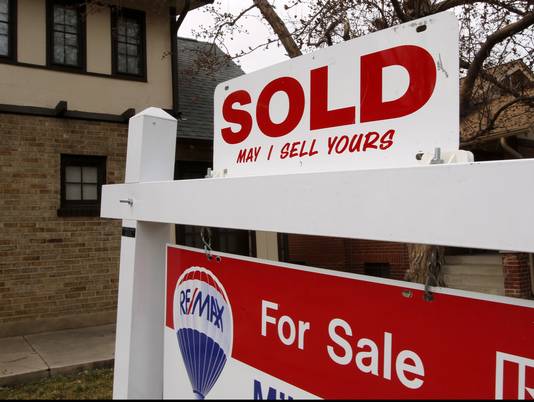
Home sold in south Denver in March 2012.(Photo: David Zalubowski, AP)
U.S. home prices jumped by the most in 6½ years in December, spurred by a low supply of available homes and rising demand.
Home prices rose 8.3%in December compared with a year earlier, according to data Tuesday from CoreLogic, a real estate data provider. That is the biggest annual gain since May 2006. Prices rose last year in 46 of 50 states.
Home prices also rose 0.4%in December from the previous month. That’s a healthy increase given that sales usually slow over the winter months.
Steady increases in prices are helping fuel the housing recovery. They’re encouraging some people to sell homes and enticing some would-be buyers to purchase homes before prices rise further.
Higher prices can also make homeowners feel wealthier. That can encourage more consumer spending.
Most economists expect prices to keep rising this year. Sales of previously-occupied homes reached their highest level in five years in 2012 and will likely keep growing. Home builders, encouraged by rising interest from customers, broke ground on the most new homes and apartments in four years last year.
Ultra-low mortgage rates and steady job gains have fueled more demand for houses and apartments. More people are moving out into their own homes after doubling up with friends and relatives in the recession.
At the same time, the number of previously-occupied homes for sale has fallen to the lowest level in 11 years.
“All signals point to a continued improvement in the fundamentals underpinning the U.S. housing market recovery,” said Anand Nallathambi, CEO of CoreLogic.
The states with the biggest price gains were Arizona, Nevada, Idaho, California, and Hawaii. The four states were prices fell were Delaware, Illinois, New Jersey and Pennsylvania.
The housing recovery is also boosting job creation. Construction companies have added 98,000 jobs in the past four months, the best hiring spree since the bubble burst in 2006. Economists forecast even more could be added this year.
Housing has been a leading driver of past recoveries. But the bursting of the housing bubble pushed a flood of foreclosed homes on the market at low prices. That made it hard for builders to compete.
And a collapse in home prices left millions of homeowners owing more on their mortgages than their houses were worth. That made it difficult to sell.
Now, six years after the bubble burst, those barriers are fading. Some economists forecast that housing could add a point or more to economic growth this year.






